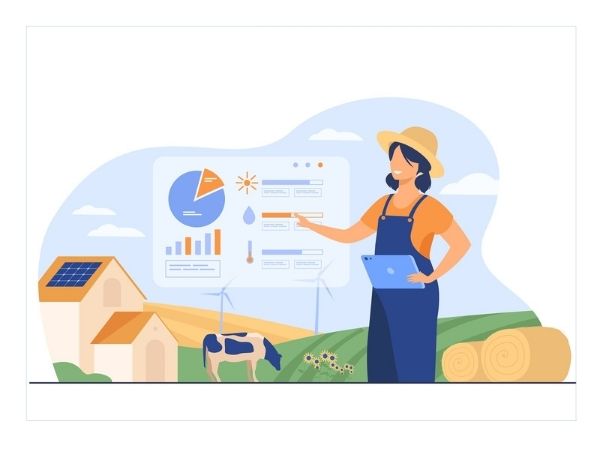How well do we know of the tribe that toils hard in the searing heat or numbing cold to fill our platter with food? But farmers do beyond providing food. They are a key reason why your wardrobe is stocked with the coveted cotton clothes. More than food and fibre, farmers shore up the economy by producing crops for exports and sustaining the employment engine. With such a profound impact on the economy and our lives, farmers deserve to avail the benefits targeted at them. This can be achieved if we have a robust database that captures the demographics of the farmers, the crops they grow, the crop output and the lands they till. And, linking this farmers’ database with land registry and other useful repositories like agri-weather forecast helps enhance productivity, translates into more outcome driven policies for the farm sector and predict crop output.

Why Is Farmer’s Registration Important?
Farmer registration is the process of collecting data for unique identification of all farmers and sourcing information about their farms and farming practices. The system helps governments inch closer to the envisaged goal of food security through its visibility on where the crop is raised. It is also essential to track the route of food before it lands on the final touchpoint. Before the food is consumed, manufacturers and suppliers need a clear picture on where it is stored given the perishability factor. A farmers’ registry that is integrated with datasets on supply chain and cold storage infrastructure ensures this end-to-end visibility. Besides this, the farmers’ database helps government departments in other ways too. By leveraging their data, the concerned government department can identify the eligible beneficiaries for a targeted scheme. The information on farmers also helps in better formulation of farm centric policies.
Benefits of the System
A robust farmers’ database helps to forecast key agriculture variables and determine the farm sector’s capacity and prospects for expansion. Farmers and buyers can get information on the location and estimated volumes of crops and livestock available while input suppliers can get information on the potential distribution of farming inputs needed. Further, it supports buyers’ purchasing strategies, operations and expansion plans. Today, for emerging economies, achieving the envisaged goal of food security is fraught with challenges since it involves tracking the entire value chain from what farmers produce to what actually ends up on the final touchpoint. A bankable farmers’ database is the first step to successfully navigate the path.
CSM’s Farm Registration System- Tracing Farmers Through Technology
Creation of a farmers’ database commences with identification of farmers. Before capturing their demographics, there has to be a foolproof criteria for validating the identity of a farmer. We have developed a seamless solution that identifies a farmer from the land he tills. This is doable since our Farm Registration System is integrated with Bhulekh, the Odisha government’s land records database. Our system has leveraged technology and went a step further to authenticate landless sharecroppers and ensure that they get full benefits of a government scheme. The system has many modules that make it truly seamless. Key among them is the digitization module where farmers and sharecroppers feed in their demographics, land holdings and bank details. On entry of these details, the system generates a unique identity for each producer. Then, there is the land verification module wherein land records entered are auto validated against the digitized land records database. This verified data is capable of seamless integration with other systems like procurement automation system & supply chain systems. The same dataset is also linked to planning & forecasting module for the benefit of end users like procurement agencies, government departments and food processing agencies. An integrated farmers’ database serves both the farm and the farmer, aligning all stakeholders in the chain with a sustainable growth model.


























































We will verify and publish your comment soon.